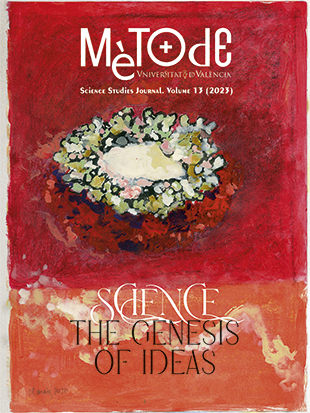Public engagement as rhetoric, persuasion as practice
DOI:
https://doi.org/10.7203/metode.13.26011 Abstract
Abstract
More than two decades ago the Public Engagement with Science and Technology (PEST) paradigm gained influence in the field of science communication, marked by the publication of the third report of the House of Lords Select Committee on Science and Technology in the year 2000. The approach advocated in the report went beyond the traditional Public Understanding of Science (PUS) paradigm that had focused on sharing scientific knowledge with broader publics via top-down dissemination. It assigned citizens a more active and powerful role vis a vis science, emphasized the need for participatory discourses aiming at a shared understanding with non-scientific publics, and acknowledged both citizens’ democratic rights regarding science-related decisions and their potential constructive contributions in the creation of socially relevant knowledge.
 Downloads
Downloads
 References
References
Downloads
Published
How to Cite
-
Abstract879
-
PDF941
Issue
Section
License
![]()
All the documents in the OJS platform are open access and property of their respective authors.
Authors publishing in the journal agree to the following terms:
- Authors keep the rights and guarantee Metode Science Studies Journal the right to be the first publication of the document, licensed under a Creative Commons Attribution-NonCommercial-NoDerivatives 4.0 International License that allows others to share the work with an acknowledgement of authorship and publication in the journal.
- Authors are allowed and encouraged to spread their work through electronic means using personal or institutional websites (institutional open archives, personal websites or professional and academic networks profiles) once the text has been published.





